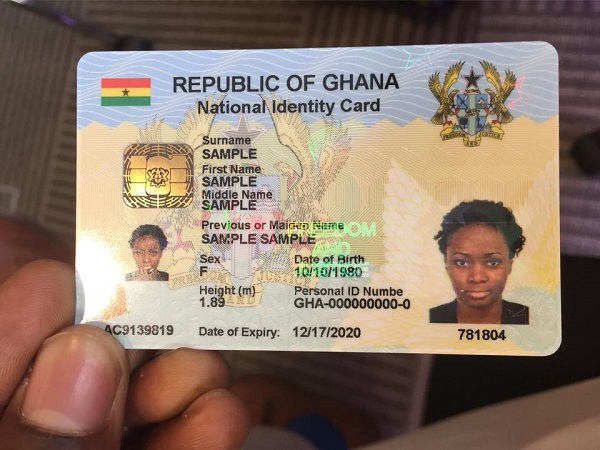The National Identification Authority (NIA) announced this week that it has fully resolved a two-year backlog in the issuance of Ghana Cards, enabling same-day issuance of new identity cards nationwide.
The backlog, which stemmed from a critical shortage of blank cards between March 2023 and January 2025, had severely disrupted the authority’s operations. According to Williams Ampomah E. Darlas, Head of Corporate Affairs at the NIA, the logistical challenges have now been resolved under the agency’s current administration.
“Between March 2023 and January 2025, yes, we had that issue because there was a shortage of blank cards in the system,” Mr. Darlas said in an interview with the Daily Graphic on September 11. “Now, under the new administration, all those backlogs have been cleared. If you registered and did not get your card, you can now go back to the centre where you registered and collect it.”
The operational upgrade means that individuals registering for the Ghana Card can now expect to receive their card on the same day of application, a significant shift from the previously delayed issuance process.
“If you register today, you should be able to get your card today,” Mr. Darlas confirmed.
Identity System Statistics
As of September 2025, the NIA has registered 18,950,942 citizens in its national database. Of this figure, 18,848,635 cards have been printed, and 17,747,459 cards have been issued. The remaining stock of printed cards—just under one million—is currently awaiting collection.
The Ghana Card has become a central component of the country’s digital identity framework. Mr. Darlas noted that approximately 95 public and private institutions, including all major banks and key government agencies, have integrated with the NIA’s platform for real-time biometric identity verification. The NIA is also supporting additional institutions through the integration process.
Expansion and Regulatory Reforms
In a bid to further expand access to its digital infrastructure, the NIA is developing a mobile application to allow smaller financial institutions—such as microfinance companies and rural banks—to access the identity verification system.
However, Mr. Darlas issued a caution regarding the unauthorized duplication of ID cards, stating that the NIA considers photocopying of Ghana Cards both illegal and a security risk.
“No, it’s not allowed,” he said. “Biometric verification through thumbprints and digital authentication is the only lawful means of validation.”
He warned that institutions requesting or storing photocopies of Ghana Cards could soon face legal consequences. The NIA, he said, is preparing amendments to its governing legislation that would criminalize such practices.
“We are amending our laws to give us the opportunity to punish institutions that request or photocopy the ID cards of citizens,” Mr. Darlas stated.
He added that these actions are intended to mitigate risks of identity theft and other forms of data misuse, noting that digital security remains a top priority for the agency.
The proposed legislative changes are expected to be presented to Parliament once it reconvenes, as part of broader efforts to strengthen the NIA’s legal mandate and reinforce the integrity of the national identity system.
The Ghana Card is now the country’s primary identification document and is increasingly being used for accessing financial services, voting, and public administration.1













